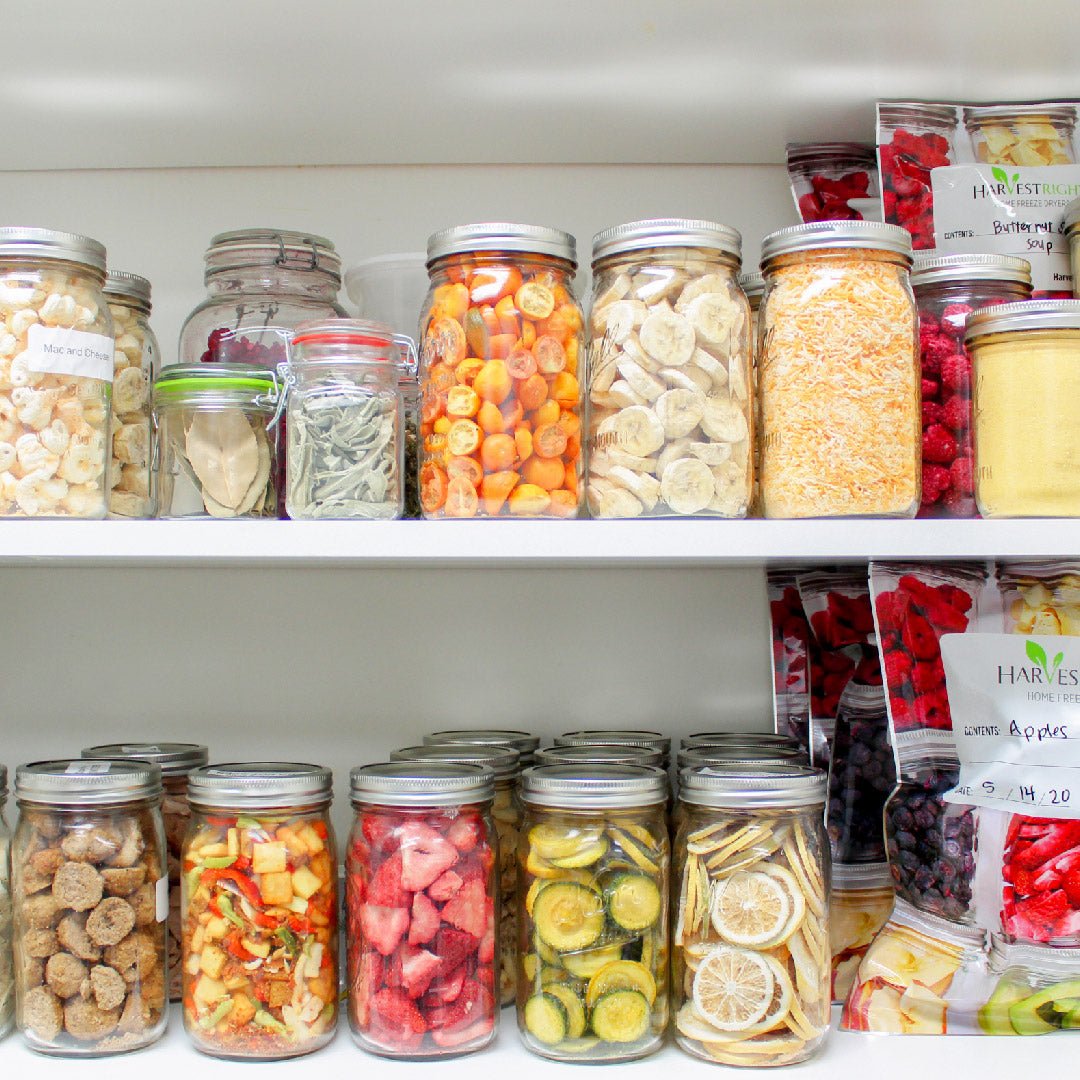To shop for a freeze dryer, click here.
To shop for a dehydrator, click here.
When it comes to preserving food, two popular methods often come to mind: freeze drying and dehydrating.
While both techniques aim to extend the shelf life of perishable items, they differ significantly in their processes and outcomes.
In this blog post, we'll explore the differences between freeze drying and dehydrating to help you understand which method may be best suited for your preservation needs.
Freeze Drying: Preserving Freshness and Nutrients
Freeze drying is a sophisticated preservation method that involves freezing food at low temperatures and then removing moisture through a process called sublimation. During sublimation, frozen water within the food transitions directly from a solid to a vapor state without passing through the liquid phase. This results in a final product that retains much of its original flavor, nutritional content, and texture.
Benefits of Freeze Drying:
- Retains nutritional value: Freeze drying preserves the vitamins, minerals, and enzymes present in the food, making it a popular choice for preserving fruits, vegetables, and meats.
- Preserves flavor and texture: Unlike traditional drying methods, freeze drying maintains the natural taste and texture of the food, ensuring a superior sensory experience.
- Extended shelf life: By removing moisture, freeze drying inhibits the growth of bacteria and molds, allowing products to remain edible for an extended period.
Dehydrating: Simple and Effective
Dehydrating, also known as drying or desiccation, involves removing moisture from food using heat and airflow. This method is more straightforward compared to freeze drying and has been used for centuries to preserve fruits, vegetables, meats, and herbs.
Benefits of Dehydrating:
- Cost-effective: Dehydrators are typically more affordable than freeze dryers, making them accessible to home users and small-scale producers.
- Easy to use: Dehydrators are user-friendly appliances that require minimal setup and maintenance.
- Suitable for certain foods: Dehydrating works well for foods with low moisture content, such as herbs, jerky, and dried fruits.
Key Differences: Freeze Drying vs. Dehydrating
-
Moisture Removal Process:
- Freeze drying: Removes moisture through sublimation, resulting in a final product with higher moisture content and superior quality.
- Dehydrating: Removes moisture through evaporation using heat and airflow, resulting in a final product with lower moisture content and a denser texture.
-
Nutritional Preservation:
- Freeze drying: Preserves the nutritional content of food more effectively due to the gentle process and low temperatures.
- Dehydrating: May lead to some nutrient loss, particularly heat-sensitive vitamins and enzymes, during the drying process.
Conclusion:
In summary, freeze drying and dehydrating are two distinct methods of food preservation, each with its own set of advantages and applications. While freeze drying excels in preserving freshness, flavour, and nutrients, dehydrating offers a simpler and more cost-effective solution for certain foods.
By understanding the differences between these methods, you can choose the preservation technique that best suits your needs and preferences. Whether you're preserving fruits for long-term storage or making homemade jerky for a snack, both freeze drying and dehydrating offer effective ways to extend the shelf life of your favorite foods.
To shop for a freeze dryer, click here.
To shop for a dehydrator, click here.

